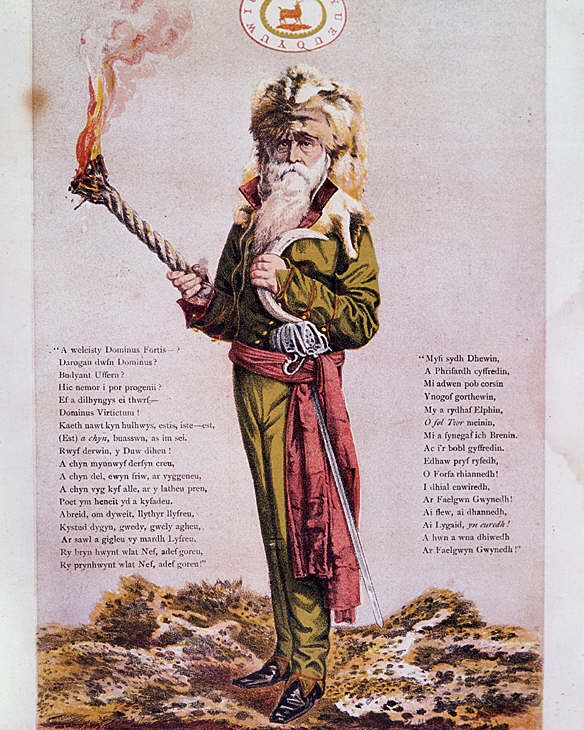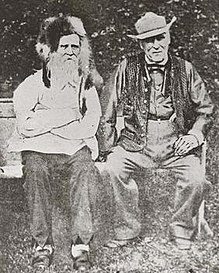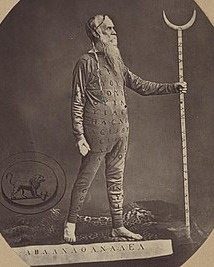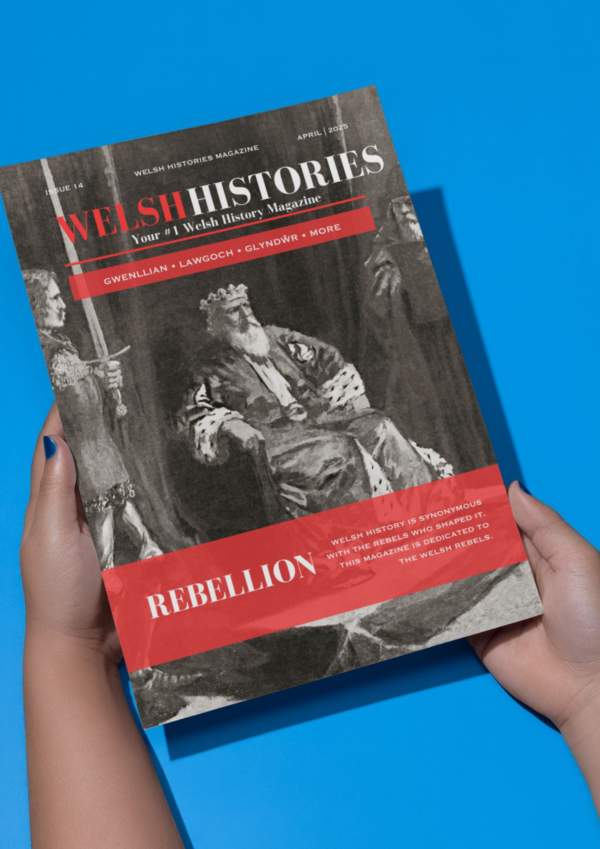Your basket is currently empty!
The Unique Origins of Cremation in Cymru
Did you know that we have a Welshman to thank for the legalisation of cremation in Cymru and the wider United Kingdom?
It was in 1884 when a 5-month old child had died of natural causes. The child was the son of Welsh physician (and archdruid), William Price (from Rhydri, Caerffili 1800-1893).

Price had decided to cremate his child (named “Iesu Grist”, the Welsh for “Jesus Christ”) in alignment with his belief that burying a corpse pollutes the earth. That evening, Price wore a white robe and carried his dead son up the hill. Placing the son on a heap, in a position where he faced the west, Price set the pile on fire.
A few local people, while returning from the church saw the entire act were shocked, assuming that Price had attempted to burn his own infant child. The crowd, along with Sergeant Tamblyn and his officers, rushed towards the fire, dragged the child’s body out of the fire, kicked the pile, extinguished the fire, and arrested Price under the belief that it was illegal to dispose a corpse in this manner.
Cremation was seen as blasphemous and a taboo in 19th century Britain and, therefore, Price was put on trial by people who believed that cremation was illegal as per the English law.
While a post-mortem report of his child suggested that the child had died of natural causes and not by murder, Price was still expected to stand in Cardiff courtroom for performing cremation and not burial.

However, he managed to outlaw it with his wit. He placed an argument against his possible imprisonment: “While cremation was not legal, it was also not *illegal*”. The judge, to the surprise of many, agreed and Price was found innocent of any wrongdoing.
The success of Price during his trial led to a flurry of cremations around the country and, ultimately, the Cremation Act 1902 being officially written. In 2022 alone, the cremation rate was 82% for Cymru and England, meaning we have much to be thankful to William Price for! After Price William’s death, he was cremated and watched by 20,000 people during the cremation ceremony.

Price’s personal beliefs often opposed the Victorian social norms. For instance, Price refused to wear socks believing they were ‘unhygienic;’ opposed vaccination after his brother’s death in the childhood following an inoculation; advocated vegetarianism believing that men who ate meat, ‘brought out the meat in men.’ He also opposed marriage under the belief that it enslaved women, and rather proposed ‘free love.’ He was also a firm believer that practitioners would make money selling drugs rather than treating the cause of illness and were therefore ‘poison peddlers.’
Price also believed that religion was a way to enslave people and therefore despised ‘preachers.’
While Biographer Dean Powell considered Price as a rebel, his beliefs made way for a modern druidic movement. Price became ‘one of the great Welshman of all time’, and continues to be remembered this way even after his death.
Share us your thoughts on niklas@welshhistories.co.uk
THERE’S MORE!
Four Welsh Paintings That Will Take You Back To the Heart of Welsh History
Earliest Welsh Map That You’ll Want to Hang on Your Fridge Door
Think You Know Welsh History? This Rebel Prince Will Make You Question It
Shop new arrivals
-
(UK + EU) YEARLY Subscription Welsh Histories Magazine
£79.99 -
(US & CAN ONLY) YEARLY Subscription Welsh Histories Magazine
£129.99 -
DIGITAL COPY Welsh Histories Magazine – April 2024
£0.99 -
DIGITAL COPY Welsh Histories Magazine – April 2025
£2.99 -
DIGITAL COPY Welsh Histories Magazine – August 2024
£1.99
More from Welsh Histories
Welsh Histories is a Welsh history celebrating platform which looks to promote all aspects of Welsh history. Though we focus predominantly on native Welsh history, we do also share the non-native aspects from time to time. You can follow us on Facebook; Instagram or Twitter for more. A reader? We also have our very own Welsh Histories Shop where we sell our Welsh Histories Magazine. Diolch yn fawr iawn and keep enjoying Welsh Histories
Sally is a proud wife of a Welshman, editor & writer of Welsh Histories. She’s all about stories—that shout ‘anything Welsh.’ Drop her an email if you have an advice, insight, experience, or a story to share.





